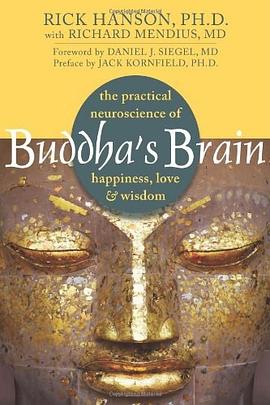Buddha's Brain
内容简介
Jesus, Gandhi, and the Buddha all had brains built essentially like anyone else's, yet they were able to harness their thoughts and shape their patterns of thinking in ways that changed history. With new breakthroughs in modern neuroscience and the wisdom of thousands of years of contemplative practice, it is possible for us to shape our own thoughts in a similar way for greater happiness, love, compassion, and wisdom. "Buddha's Brain" joins the forces of modern neuroscience with ancient contemplative teachings to show readers how they can work toward greater emotional well-being, healthier relationships, more effective actions, and deepened religious and spiritual understanding. This book will explain how the core elements of both psychological well-being and religious or spiritual life - virtue, mindfulness, and wisdom - are based in the core functions of the brain: regulating, learning, and valuing.
......(更多)
作者简介
里克•汉森 博士,是一位冥想教练,同时也是一位神经心理学家。
理查德•蒙迪思 博士,是一位神经学家,从事内科医生近30年。
他们共同创建了“冥想修行和神经科学智慧之源学院”。你可以在学院的网站找到更多关于冥想的信息:www.wisebrain.org
......(更多)
目录
......(更多)
读书文摘
很多冥想形式,和科学体系最接近的是佛教。心理学、神经学和打坐修行法是冥想关注的重点。道德、静观(也称注意力集中)和智慧是佛教修行的三大支柱,也称为幸福感、心理成长和精神价值的实现。学习会让自我意识更强大稳定,注意力更集中。智慧是优化选择的问题,为了得到更大的快乐,会选择抛弃一些较小的快乐。对于过去和现在,全盘接受是唯一的选择。
......(更多)






